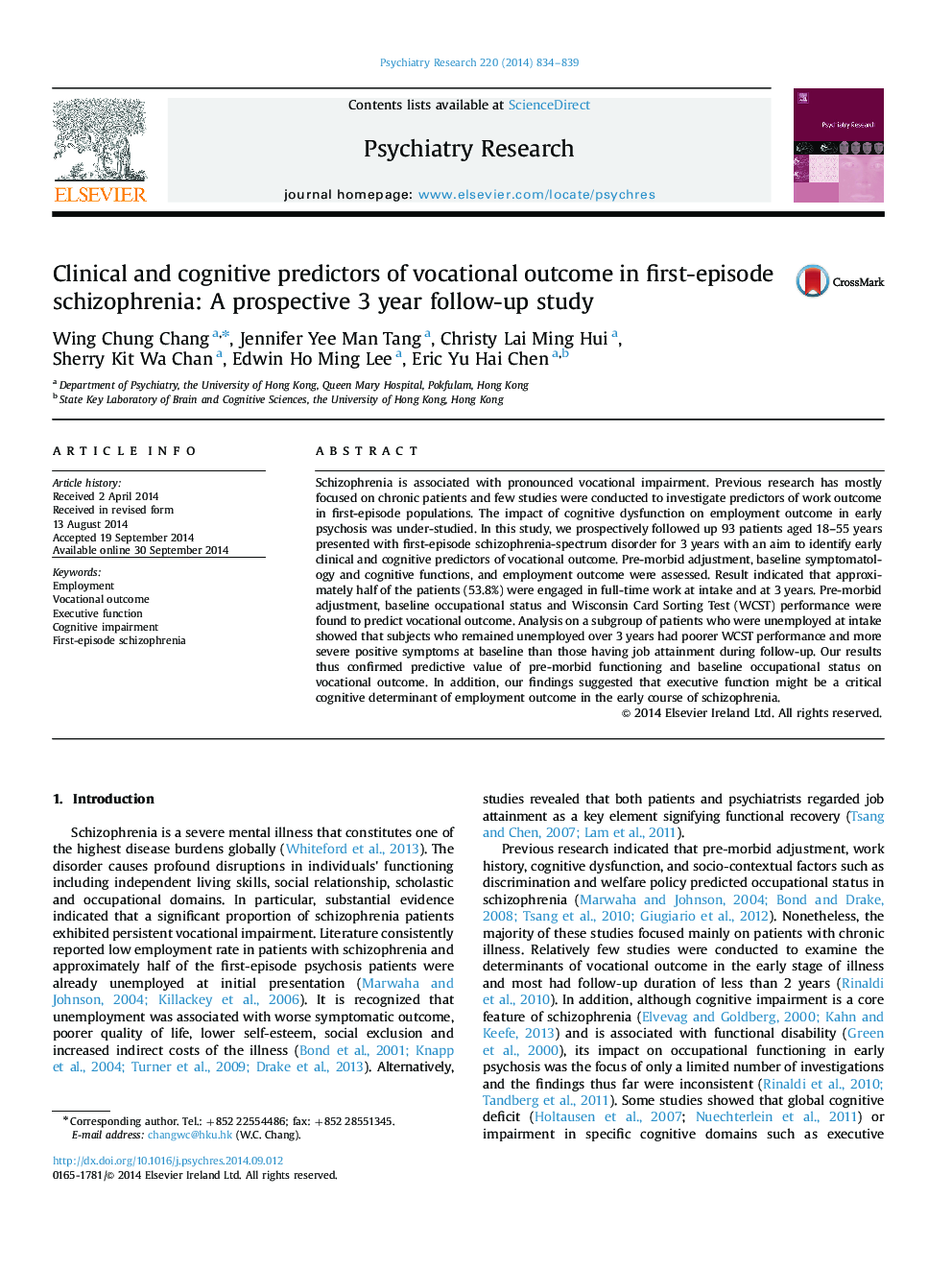| Article ID | Journal | Published Year | Pages | File Type |
|---|---|---|---|---|
| 6814527 | Psychiatry Research | 2014 | 6 Pages |
Abstract
Schizophrenia is associated with pronounced vocational impairment. Previous research has mostly focused on chronic patients and few studies were conducted to investigate predictors of work outcome in first-episode populations. The impact of cognitive dysfunction on employment outcome in early psychosis was underâstudied. In this study, we prospectively followed up 93 patients aged 18-55 years presented with first-episode schizophrenia-spectrum disorder for 3 years with an aim to identify early clinical and cognitive predictors of vocational outcome. Pre-morbid adjustment, baseline symptomatology and cognitive functions, and employment outcome were assessed. Result indicated that approximately half of the patients (53.8%) were engaged in full-time work at intake and at 3 years. Pre-morbid adjustment, baseline occupational status and Wisconsin Card Sorting Test (WCST) performance were found to predict vocational outcome. Analysis on a subgroup of patients who were unemployed at intake showed that subjects who remained unemployed over 3 years had poorer WCST performance and more severe positive symptoms at baseline than those having job attainment during follow-up. Our results thus confirmed predictive value of pre-morbid functioning and baseline occupational status on vocational outcome. In addition, our findings suggested that executive function might be a critical cognitive determinant of employment outcome in the early course of schizophrenia.
Keywords
Related Topics
Life Sciences
Neuroscience
Biological Psychiatry
Authors
Wing Chung Chang, Jennifer Yee Man Tang, Christy Lai Ming Hui, Sherry Kit Wa Chan, Edwin Ho Ming Lee, Eric Yu Hai Chen,
